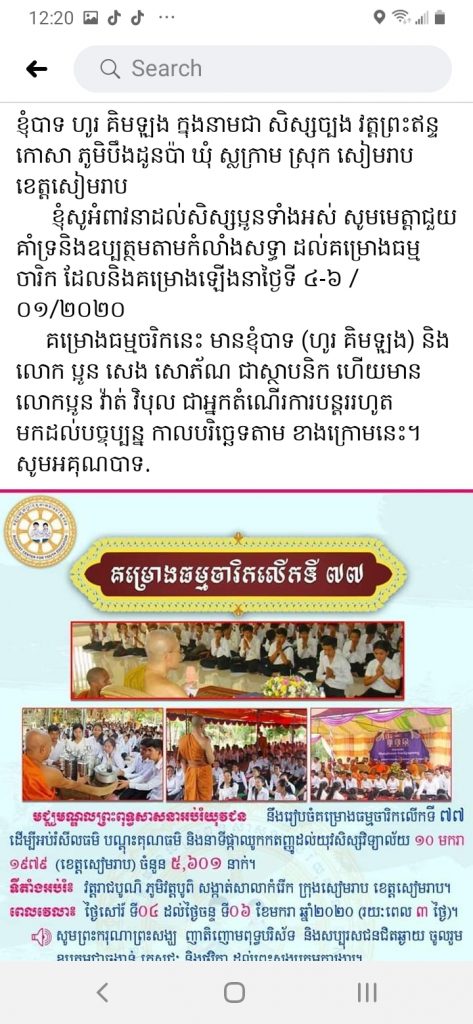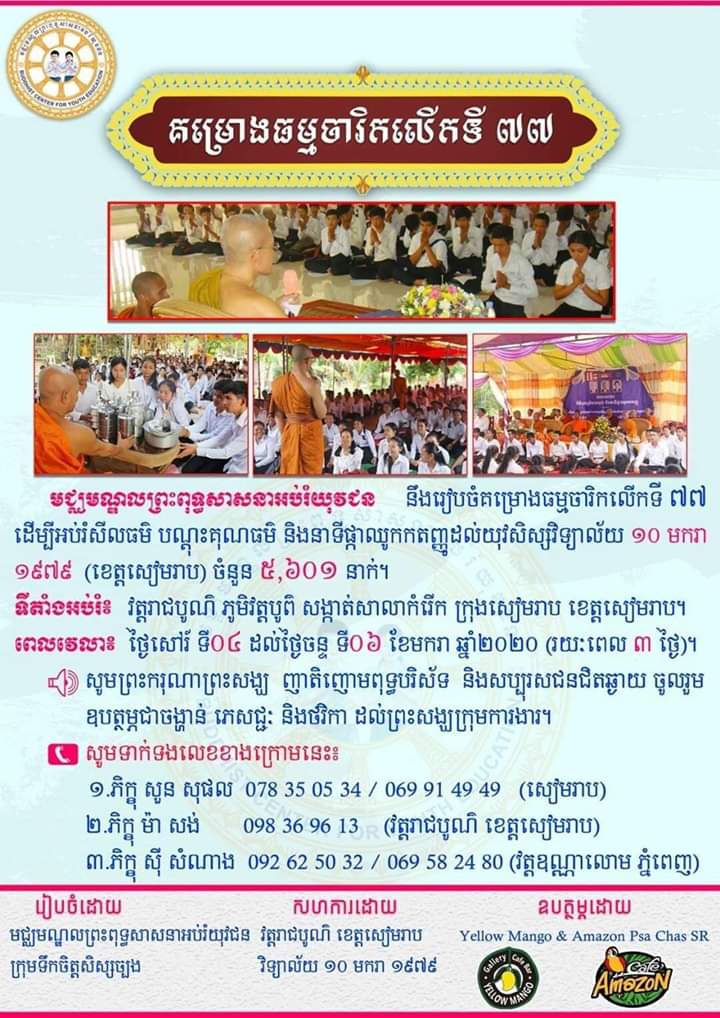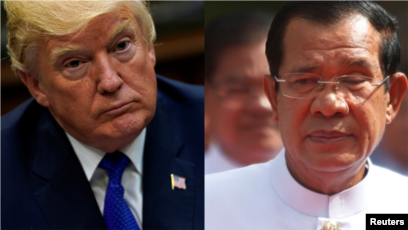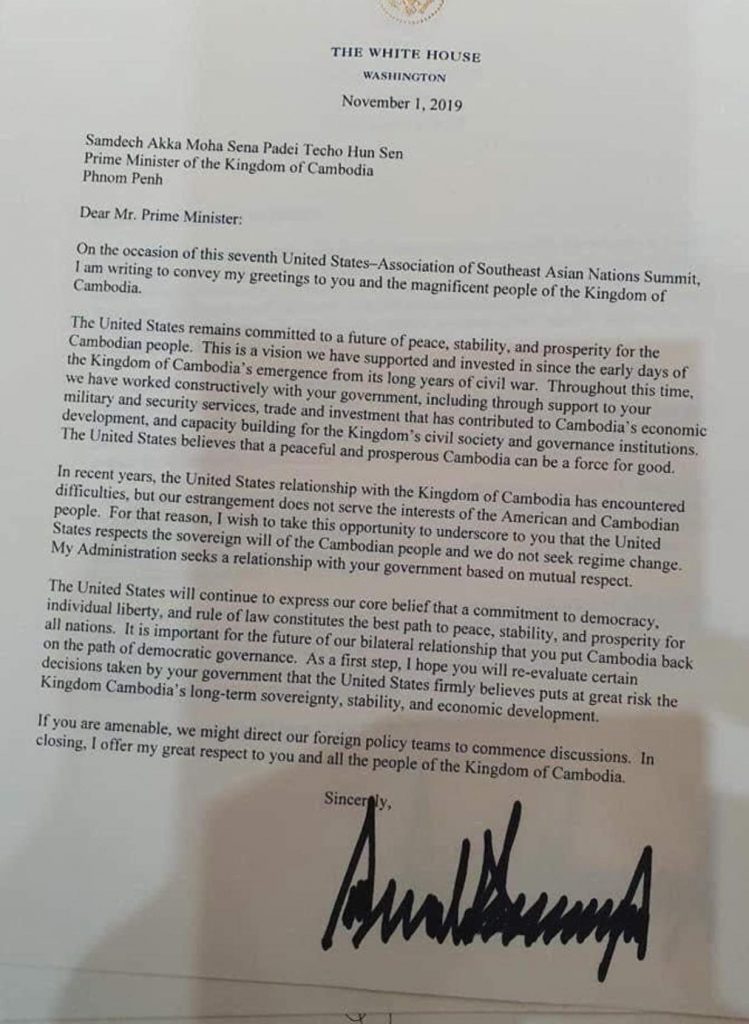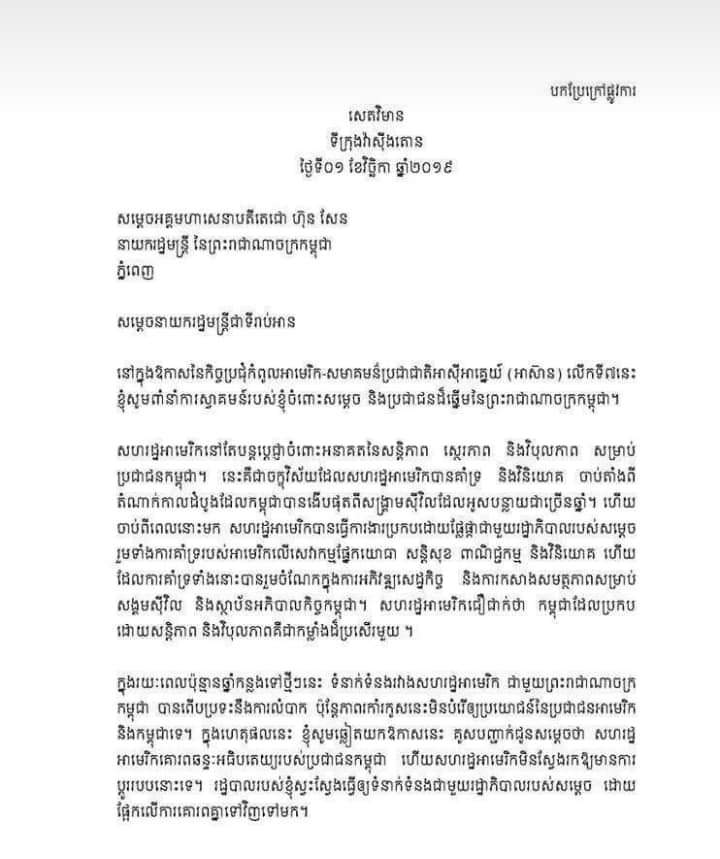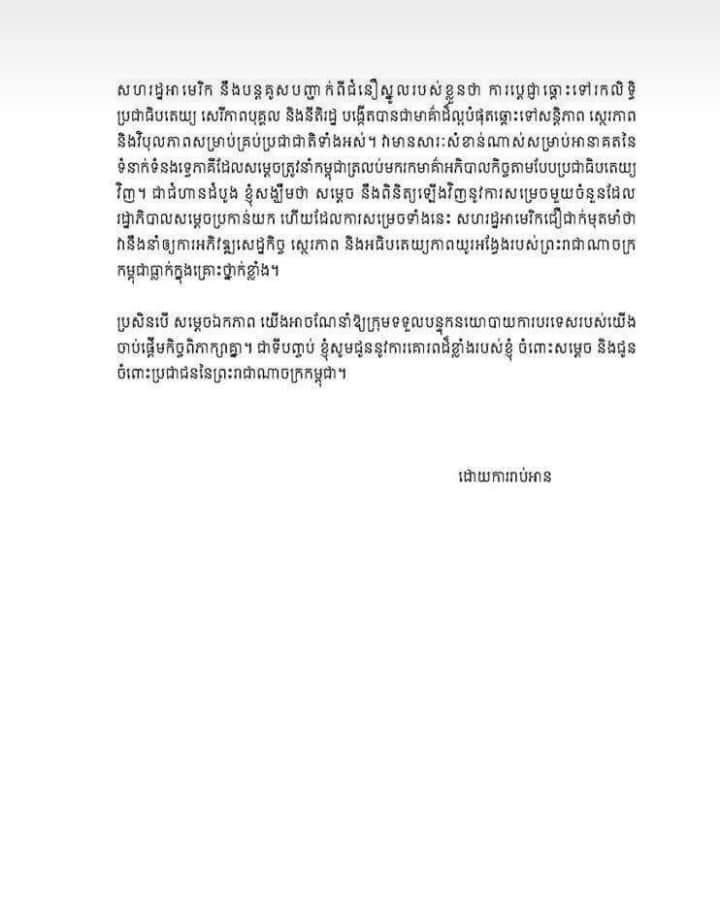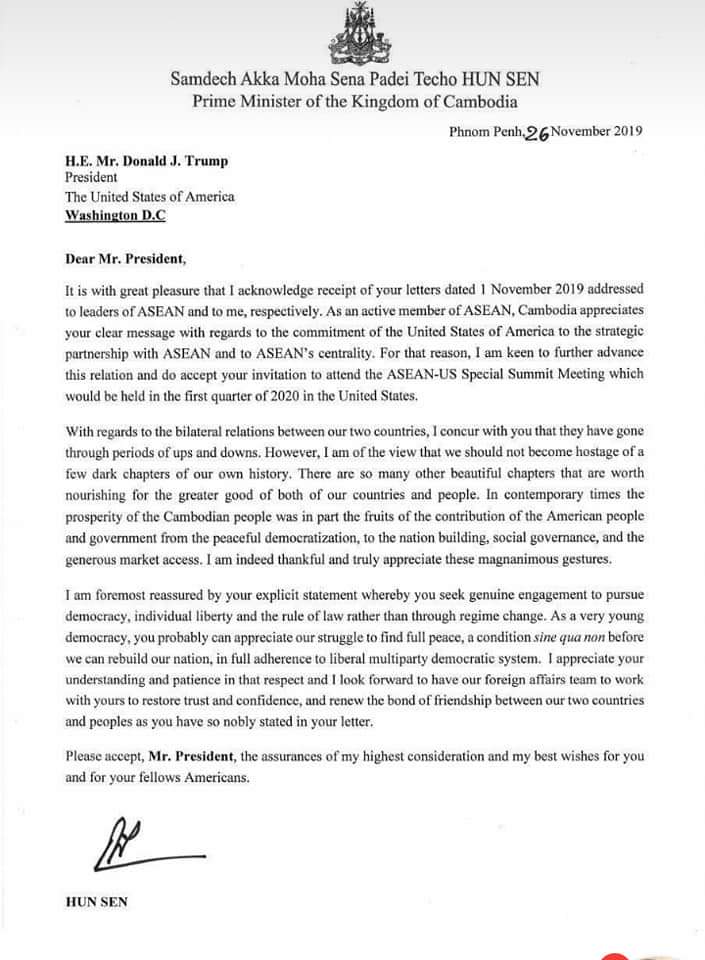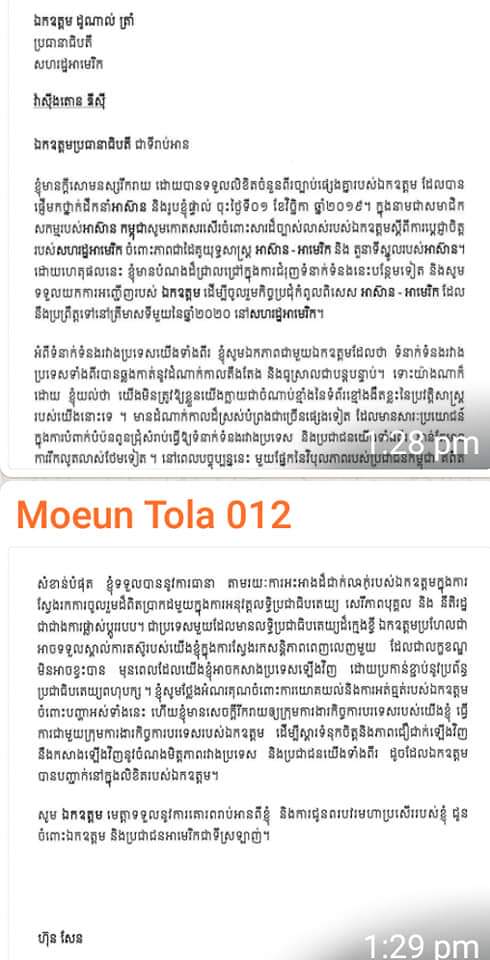បណ្តាំពីស្ថាបនិកមជ្ឈមណ្ឌលព្រះពុទ្ធសាសនាអប់រំយុវជនពីប្រទេសកាណាដា
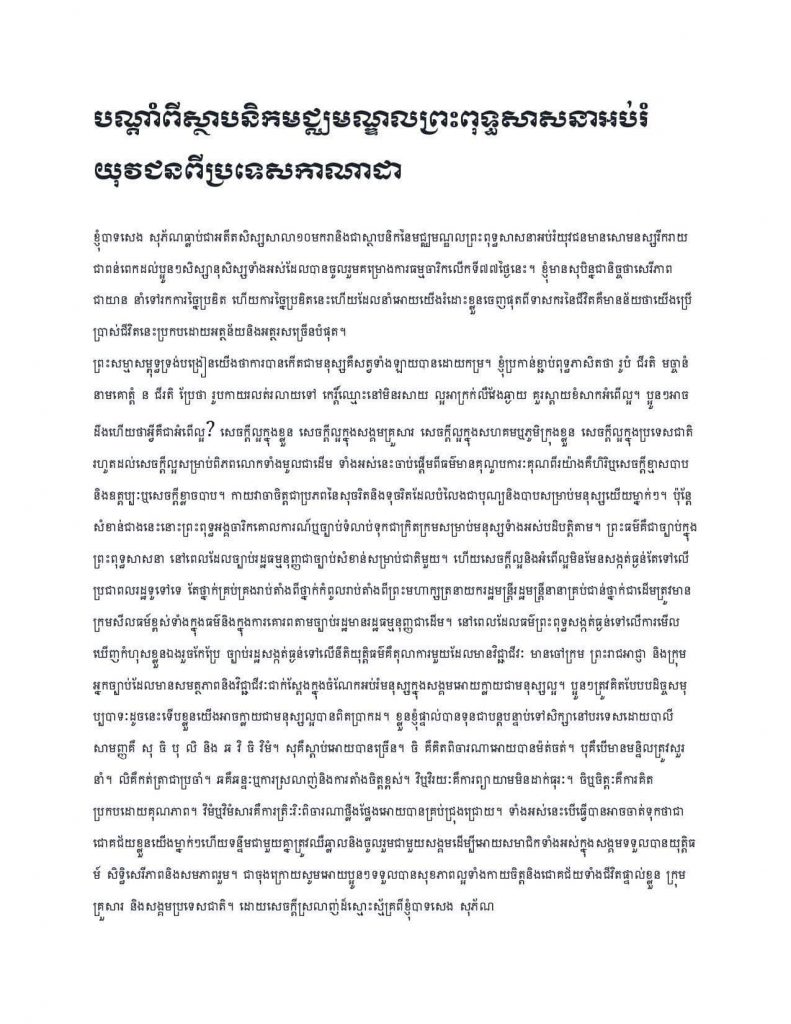
ខ្ញុំបាទសេង សុភ័ណធ្លាប់ជាអតីតសិស្សសាលា១០មករានិងជាស្ថាបនិកនៃមជ្ឈមណ្ឌលព្រះពុទ្ធសាសនាអប់រំយុវជនមានសោមនស្សរីករាយជាពន់ពេកដល់ប្អូនៗសិស្សានុសិស្សទាំងអស់ដែលបានចូលរួមគម្រោងការធម្មចារិកលើកទី៧៧ថ្ងៃនេះ។ ខ្ញុំមានសុបិន្នជានិច្ចថាសេរីភាពជាយាន នាំទៅរកការច្នៃប្រឌិត ហើយការច្នៃប្រឌិតនេះហើយដែលនាំអោយយើងរំដោះខ្លួនចេញផុតពីទាសករនៃជីវិតគឺមានន័យថាយើងប្រើប្រាស់ជីវិតនេះប្រកបដោយអត្ថន័យនិងអត្ថរសច្រើនបំផុត។
ព្រះសម្មាសម្ពុទ្ធទ្រង់បង្រៀនយើងថាការបានកើតជាមនុស្សគឺសត្វទាំងឡាយបានដោយកម្រ។ ខ្ញុំប្រកាន់ខ្ជាប់ពុទ្ធភាសិតថា រូបំ ជីរតិ មច្ចានំ នាមគោត្តំ ន ជីរតិ ប្រែថា រូបកាយរលត់រលាយទៅ កេរ្តិ៍ឈ្មោះនៅមិនរសាយ ល្អអាក្រក់លឺវែងឆ្ងាយ គួរស្តាយខំសាកអំពើល្អ។ ប្អូនៗអាចដឹងហើយថាអ្វីគឺជាអំពើល្អ? សេចក្តីល្អក្នុងខ្លួន សេចក្តីល្អក្នុងសង្គមគ្រួសារ សេចក្តីល្អក្នុងសហគមឬភូមិក្រុងខ្លួន សេចក្តីល្អក្នុងប្រទេសជាតិ រហូតដល់សេចក្តីល្អសម្រាប់ពិភពលោកទាំងមូលជាដើម ទាំងអស់នេះចាប់ផ្តើមពីធម៌មានគុណូបការៈគុណពីរយ៉ាងគឺហិរិឬសេចក្តីខ្មាសបាប និងឧត្តប្បៈឬសេចក្តីខ្លាចបាប។ កាយវាចាចិត្តជាប្រភពនៃសុចរិតនិងទុចរិតដែលបំលៃងជាបុណ្យនិងបាបសម្រាប់មនុស្សយើយម្នាក់ៗ។ ប៉ុន្តែសំខាន់ជាងនេះនោះព្រះពុទ្ធអង្គចារិកគោលការណ៍ឬច្បាប់ទំលាប់ទុកជាក្រិតក្រមសម្រាប់មនុស្សទំាងអស់បដិបត្តិតាម។ ព្រះធម៌គឺជាច្បាប់ក្នុងព្រះពុទ្ធសាសនា នៅពេលដែលច្បាប់រដ្ឋធម្មនុញ្ញជាច្បាប់សំខាន់សម្រាប់ជាតិមួយ។ ហើយសេចក្តីល្អនិងអំពើល្អមិនមែនសង្កត់ធ្ងន់តែទៅលើប្រជាពលរដ្ឋទូទៅទេ តែថ្នាក់គ្រប់គ្រងរាប់តាំងពីថ្នាក់កំពូលរាប់តាំងពីព្រះមហាក្សត្រនាយករដ្ឋមន្ត្រីរដ្ឋមន្ត្រីនានាគ្រប់ជាន់ថ្នាក់ជាដើមត្រូវមានក្រមសីលធម៍ខ្ពស់ទាំងក្នុងធម៌និងក្នុងការគោរពតាមច្បាប់រដ្ឋមានរដ្ឋធម្មនុញ្ញជាដើម។ នៅពេលដែលធម៌ព្រះពុទ្ធសង្កត់ធ្ងន់ទៅលើការមើលឃើញកំហុសខ្លួនឯងរួចកែប្រែ ច្បាប់រដ្ឋសង្កត់ធ្ងន់ទៅលើនីតិយុត្តិធម៌គឺតុលាការមួយដែលមានវិជ្ជាជីវៈ មានចៅក្រម ព្រះរាជអាជ្ញា និងក្រុមអ្នកច្បាប់ដែលមានសមត្ថភាពនិងវិជ្ជាជីវៈជាក់ស្តែងក្នុងចំណែកអប់រំមនុស្សក្នុងសង្គមអោយក្លាយជាមនុស្សល្អ។ ប្អូនៗត្រូវគិតបែបបដិច្ចសមុប្បបាទៈដូចនេះទើបខ្លួនយើងអាចក្លាយជាមនុស្សល្អបានពិតប្រាកដ។ ខ្លួនខ្ញុំផ្ទាល់បានទុនជាបន្តបន្ទាប់ទៅសិក្សានៅបរទេសដោយបាលីសាមញ្ញគឺ សុ ចិ បុ លិ និង ឆ វិ ចិ វិមំ។ សុគឺស្តាប់អោយបានច្រើន។ ចិ គឺគិតពិចារណាអោយបានម៉ត់ចត់។ បុគឺបើមានមន្ទិលត្រូវសួរនាំ។ លិគឺកត់ត្រាជាប្រចាំ។ ឆគឺឆន្ទៈឬការស្រលាញ់និងការតាំងចិត្តខ្ពស់។ វិឬវិរយៈគឺការព្យាយាមមិនដាក់ធុរៈ។ ចិឬចិត្តៈគឺការគិតប្រកបដោយគុណភាព។ វិមំឬវិមំសារគឺការត្រិៈរិៈពិចារណាថ្លឹងថ្លែងអោយបានគ្រប់ជ្រុងជ្រោយ។ ទាំងអស់នេះបើធ្វើបានអាចចាត់ទុកថាជាជោគជ័យខ្លួនយើងម្នាក់ៗហើយទន្ទឹមជាមួយគ្នាត្រូវឈឺឆ្លាលនិងចូលរួមជាមួយសង្គមដើម្បីអោយសមាជិកទាំងអស់ក្នុងសង្គមទទួលបានយុត្តិធម៍ សិទ្ធិសេរីភាពនិងសមភាពរួម។ ជាចុងក្រោយសូមអោយប្អូនៗទទួលបានសុខភាពល្អទាំងកាយចិត្តនិងជោគជ័យទាំងជីវិតផ្ទាល់ខ្លួន ក្រុមគ្រួសារ និងសង្គមប្រទេសជាតិ។
ដោយសេចក្តីស្រលាញ់ដ៏ស្មោះស្ម័គ្រពីខ្ញុំបាទសេង សុភ័ណ
